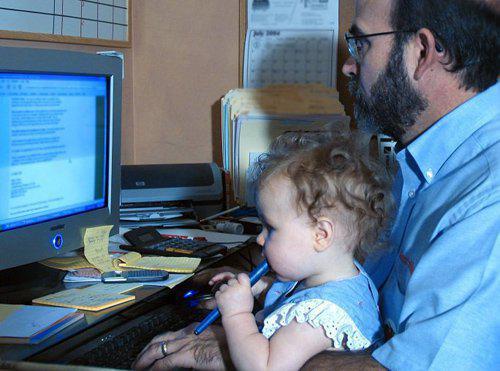Recent Blog Posts
Divorce for Mentally Disabled More Easier in the Future
 Mentally disabled people have not been able to get a divorce in Illinois in the past unless his or her spouse has wanted to. However, this might change in the near future due to a recent ruling in a case in Cook County, according to the Chicago Tribune. Marcia Karbin was in a car accident in 1997 and has been suffering from brain damage ever since. After the accident, her daughter was named her legal guardian. Marcia has had financial disputes with her husband which prompted her daughter to seek a divorce for her.
Mentally disabled people have not been able to get a divorce in Illinois in the past unless his or her spouse has wanted to. However, this might change in the near future due to a recent ruling in a case in Cook County, according to the Chicago Tribune. Marcia Karbin was in a car accident in 1997 and has been suffering from brain damage ever since. After the accident, her daughter was named her legal guardian. Marcia has had financial disputes with her husband which prompted her daughter to seek a divorce for her.
In the past, guardians have not been allowed to seek a divorce on behalf of the mentally disabled people they were taking care of. It didn’t matter whether a person had a severe brain damage, Alzheimer’s or a mental illness whose effects come and go – even if they were able to voice their desires, they were still banned from seeking a divorce. The ban, however, might leave disabled people under the control of abusive or exploitative spouses. As stated by Justice Charles Freeman, "either the guardian can act in the best interests of the ward for all personal matters, or for none at all."
Illinois Opens Door for Divorce for Mentally Disabled
 According to the Chicago Tribune, the Illinois Supreme Court opened the door "to divorce for people who need guardians because of mental disabilities." It’s great news for the thousands of Illinois residents who suffer from mental disabilities, as before the law was passed, "the disabled person could not get a divorce unless his or her spouse started the process."
According to the Chicago Tribune, the Illinois Supreme Court opened the door "to divorce for people who need guardians because of mental disabilities." It’s great news for the thousands of Illinois residents who suffer from mental disabilities, as before the law was passed, "the disabled person could not get a divorce unless his or her spouse started the process."
The state Supreme Court ruling stated that the ban "is no longer appropriate. It could leave vulnerable people at the complete mercy of spouses who abuse them or exploit them financially." Under the new law, the court will consider each disabled person individually, and allow the judge to decide on an individual basis that, "there is clear and convincing evidence that [divorce] would be in the disabled person’s best interests."
States That Allow Same-Sex Marriage Have Lower Divorce Rates
According to Medill, a publication of Northwestern University in Chicago, "states that allow same-sex marriage have some of the lowest [divorce] rates in the country." As the idea of legal LGBT marriage comes to Illinois, many opponents fear that it will ruin the idea of a nuclear family, traditionally consisting of a mother, father, and children. Yet Carolina Staerk, a representative from Equity Illinois, has stated that the state has recently become open to the idea of a marriage equality act. 
According to the Medill, the divorce rate is lowest in states that allow same-sex marriage. "Same-sex couples took their vows for the first time May 17, 2004, as Massachusetts became the first state to legalize same-sex marriage." In 2004, the divorce rate in that state was 2.2 for every 1,000 people. By 2010 that had risen to 2.5 per 1,000 people; still the second lowest divorce rate in the country by state. The state with the lowest divorce rate in 2010? Iowa—another state that allows same-sex marriage.
Sitting Michigan Trial Judge Faces Paternity Suit by Flint Attorney
 Michigan Live is reporting that Flint attorney Denise Ketchmark has filed a lawsuit against Genesee Circuit Judge Archie Hayman seeking more than $4 million in child support and other damages. Hayman, who is well known for his insistence on men being held to their responsibilities as fathers, allegedly carried on a secret twenty-year love affair and fathered two children out of wedlock with Ketchmark, all the while shirking his financial responsibilities for the children.
Michigan Live is reporting that Flint attorney Denise Ketchmark has filed a lawsuit against Genesee Circuit Judge Archie Hayman seeking more than $4 million in child support and other damages. Hayman, who is well known for his insistence on men being held to their responsibilities as fathers, allegedly carried on a secret twenty-year love affair and fathered two children out of wedlock with Ketchmark, all the while shirking his financial responsibilities for the children.
Hayman has responded to the lawsuit by seeking to have the case file sealed from public view, and requesting an order for DNA testing in order to prove his parentage of the children, despite the fact that he previously signed affidavits of parentage for both children and provided medical insurance for them. Ketchmark is opposing these motions, stating that the public has a right to know if Hayman has committed insurance fraud by obtaining insurance for children who he now claims are not his biological children, and that Hayman waived his right to genetic testing when he signed affidavits of parentage.
Ex-Wife of Ex-LA Dodgers Owner Asks Court to Reopen 2010 Divorce Settlement
 According to a recent article in The Washington Post, former LA Dodgers owner Frank McCourt is facing a motion by his ex-wife, Jamie McCourt, seeking to reopen their October, 2010 divorce settlement, in which she received $131 million. Jamie McCourt, through her attorneys, filed her motion to set aside the divorce settlement in the Los Angeles Superior Court on September 24, 2012.
According to a recent article in The Washington Post, former LA Dodgers owner Frank McCourt is facing a motion by his ex-wife, Jamie McCourt, seeking to reopen their October, 2010 divorce settlement, in which she received $131 million. Jamie McCourt, through her attorneys, filed her motion to set aside the divorce settlement in the Los Angeles Superior Court on September 24, 2012.
In her motion, Jamie McCourt is claiming that Frank McCourt substantially misrepresented the value of the LA Dodgers, which he sold earlier this year for $2 billion to a group of investors including former Los Angeles Lakers star Magic Johnson. The sale price represented the highest amount ever paid for a professional sports franchise, which is particularly interesting in light of the fact that the Dodgers initiated bankruptcy proceedings in June, 2011. In those proceedings, attorneys for Major League Baseball claimed that McCourt had funded his lavish lifestyle at the expense of the Dodgers, with over $180 million in revenue taken from the club.
Premarital Agreements in Illinois
 Everyone has heard that half of marriages end in divorce, so it is getting more and more common to take legal action to protect your personal assets and property. The easiest and the most common way of doing this is to have your future spouse sign a premarital agreement. Here are the basics of what the Illinois Uniform Premarital Agreement Act says about prenuptial agreements:
Everyone has heard that half of marriages end in divorce, so it is getting more and more common to take legal action to protect your personal assets and property. The easiest and the most common way of doing this is to have your future spouse sign a premarital agreement. Here are the basics of what the Illinois Uniform Premarital Agreement Act says about prenuptial agreements:
What is a premarital agreement?
A premarital agreement is defined in the IUPAA as "an agreement between prospective spouses made in contemplation of marriage and to be effective upon marriage." The agreement must be in writing and it has to be signed by both parties. After it is signed, it is enforceable without consideration. As with all legal contracts, you should make sure that the agreement is written properly and that you know exactly what you are agreeing to. Get an experienced family law attorney to help you with such matters.
Basics Of Custodial Rights
 When you are going through a divorce, there many questions that need answered, and child custody is among the most pressing. An important aspect in this is to know what kind of custody you are looking for. According to a Huffington Post story, parents go to court, fighting for child custody, without actually knowing what the custodial arrangement they want means. A skilled family law attorney can help you with these matters.
When you are going through a divorce, there many questions that need answered, and child custody is among the most pressing. An important aspect in this is to know what kind of custody you are looking for. According to a Huffington Post story, parents go to court, fighting for child custody, without actually knowing what the custodial arrangement they want means. A skilled family law attorney can help you with these matters.
Judge Michele F. Lowrance, a family court judge for 17 years, said that is is not uncommon for a parent asking for sole custody to not really know what it means. Parents looking for joint custody are often the same way, according to her. As are so many other issues in divorce, fighting for custodial rights is not only emotionally challenging, but it can also be very confusing.
A Stepparent Can Also Petition For Custody
 The Illinois Marriage and Dissolution of Marriage Act is the legal basis for child custody proceedings in Illinois. The Act has statutes on child custody matters in case of dissolution or invalidation of marriage, as well as for governing a case of a parent petitioning for custody in the county where they are permanent residents. The IMDMA also talks about matters that might not be as common in courtrooms, and we will look at one of these matters.
The Illinois Marriage and Dissolution of Marriage Act is the legal basis for child custody proceedings in Illinois. The Act has statutes on child custody matters in case of dissolution or invalidation of marriage, as well as for governing a case of a parent petitioning for custody in the county where they are permanent residents. The IMDMA also talks about matters that might not be as common in courtrooms, and we will look at one of these matters.
The right of a stepparent to file a petition for custody under certain conditions is part of the IMDMA. Since this is not the most common arrangement, there are conditions for these proceedings. The conditions list all of the following:
- the child is at least 12 years old
- the custodial parent and stepparent were married for a minimum of 5 years, and the child lived with the parent and the stepparent
Childless Couples Divorcing More Than Those With Children?
 It is common knowledge that fifty percent of marriages end in divorce. But how often do you hear numbers from beyond that general statement? In addition to variables such as age groups and multiple marriages, there seems to be a difference in the divorce rate for couples with and without children.
It is common knowledge that fifty percent of marriages end in divorce. But how often do you hear numbers from beyond that general statement? In addition to variables such as age groups and multiple marriages, there seems to be a difference in the divorce rate for couples with and without children.
Divorcerate.org follows different studies and makes estimates about the divorce rate in the United States and around the world. According to the site, couples with children have a lower divorce rate than those who do not have children. The site says that the absence of children leads to loneliness and weariness, and they suggest that 66 percent of all divorced couples in the U.S. are childless.
Vicki Larson also wrote a blog about the subject in the Huffington Post divorce section. She talks about a study in 1948, saying that the rate for childless divorce at that time was almost double the rate of families with children. Journalist Anneli Rufus also says that 66 percent of divorcees in the United States are childless.
What’s Mine is Not Yours
Divorcing is one of the most stressful life events a person can go through. According to the American Psychology Association, divorce is one of the major life events that can have serious psychological implications on both parties. Most divorces, of course, come from an already-stressful marriage. With all sorts of new challenges, such as division of property, the dueling couple might feel completely overwhelmed with the idea of separation. If you’re going through a divorce, there are some important Illinois laws regarding division of property to keep in mind.
According to the American Academy of Matrimonial Lawyers, in Illinois, "if property was acquired during the marriage there is a presumption that the property is marital." This means that even if the property is solely in your spouse’s name, it’s still considered to be jointly owned. If property was a gift, was acquired before the marriage or after a legal separation, however, it’s not considered to be jointly owned. These, of course, are important exceptions to keep in mind before even considering divorce.















